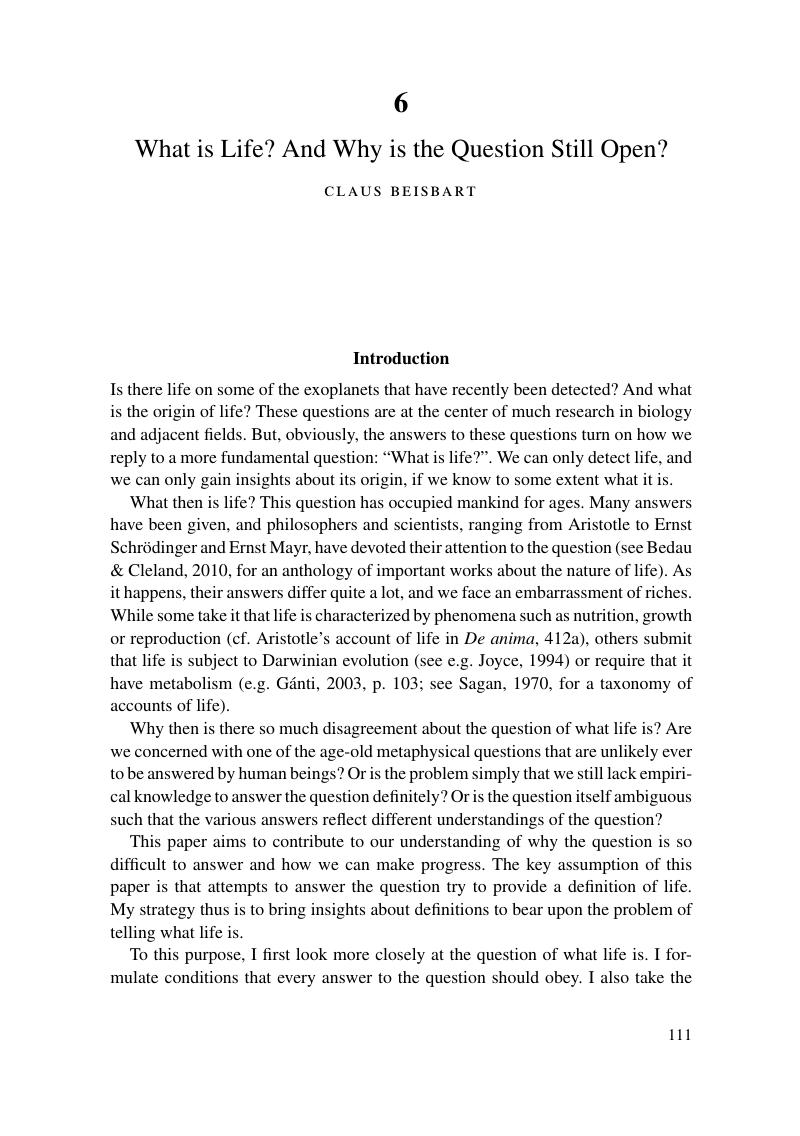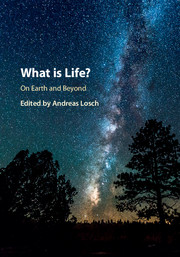Book contents
- What is Life? On Earth and Beyond
- Additional material
- What is Life? On Earth and Beyond
- Copyright page
- Dedication
- Contents
- Contributors
- Preface
- Introduction
- Science
- Philosophy
- 5 Science and Philosophy Faced with the Question of Life in the Twentyfirst Century
- 6 What is Life? And Why is the Question Still Open?
- 7 Is the Origin of Life a Fluke? Why the Chance Hypothesis Should Not be Dismissed Too Quickly
- 8 Some Contemporary – and Persistent – Fallacies and Confusions about Astrobiology
- 9 Superintelligent AI and the Postbiological Cosmos Approach1
- Theology
- Conclusion
- Index
- References
6 - What is Life? And Why is the Question Still Open?
from Philosophy
Published online by Cambridge University Press: 08 July 2017
- What is Life? On Earth and Beyond
- Additional material
- What is Life? On Earth and Beyond
- Copyright page
- Dedication
- Contents
- Contributors
- Preface
- Introduction
- Science
- Philosophy
- 5 Science and Philosophy Faced with the Question of Life in the Twentyfirst Century
- 6 What is Life? And Why is the Question Still Open?
- 7 Is the Origin of Life a Fluke? Why the Chance Hypothesis Should Not be Dismissed Too Quickly
- 8 Some Contemporary – and Persistent – Fallacies and Confusions about Astrobiology
- 9 Superintelligent AI and the Postbiological Cosmos Approach1
- Theology
- Conclusion
- Index
- References
Summary

Information
- Type
- Chapter
- Information
- What is Life? On Earth and Beyond , pp. 111 - 131Publisher: Cambridge University PressPrint publication year: 2017
References
Accessibility standard: Unknown
Why this information is here
This section outlines the accessibility features of this content - including support for screen readers, full keyboard navigation and high-contrast display options. This may not be relevant for you.Accessibility Information
- 2
- Cited by
